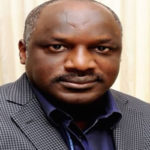CONTINUE FROM LAST WEEK
At another systemic level, the Oronsaye report fails to speak to what would be a most significant institutional and economic consequences of rationalization. Whether we are prepared to face it or not, institutional rationalization carries the burden of redundancy management that often comes with the pain of retrenchment and downsizing. Even if, for the sake of the politics,the Oronsaye Report is limited to targeting overhead cost and payroll saving to facilitate a no-job-loss-palliative. Yet, such an option cannot escape the cost of human-induced redundancies and attendant inefficiency in capacity utilization and associated productivity challenges. The merger-acquisition-undertakers dynamics to implementation of the report will no doubt lead inevitably to the terrible burden of payment of severance packages which will be huge and unaffordable. And we do not need any seer to tell us how non-payment will be met with a further undermining of the productivity dynamics through the reactions of a trade unionism founded on an adversarial industrial relationthat see the government and management teams as enemies. Yet, no one can grudge trade unions the case they make on behalf of their members. When the public service downsizes, it brings untold hardship to those who have always been public servants all their lives, and hence had nothing else to fall back on when they face retrenchment. A government cannot irresponsibly raise hopes of helpless people through reckless unplanned employment contracts, only to wake up overnight to want to throw people with a life into the cold without reasonable cover. And, from the tragic example of the civil service purge of 1975, government is not always ready and prepared to put together a post-retirement package that will help those affected by the downsizing to regain some level of dignity, and that will satisfy the trade unions on behalf of their members.
Beyond the Oronsaye Report …holding the Reform Bull by the Horn
Let me reiterate: the Oronsaye Report is a solid and perspicacious first step on the way to an efficient unraveling of the cost of governance predicament Nigeria has been battling with since independence. And the bravery of the Buhari administration should be acknowledged for deciding to go through with this first step in cleansing the Augean stable of an inefficient government business mechanism that has consistently failed to meet up with Nigeria’s productivity challenge. However, to get to the core of the issue of the cost of governance is to go all the way rather than half of it. There is therefore an urgent need to go beyond a superficial step towards a more systemic, systematic and scientific framing and diagnostic understanding of the crisis. And there are several administrative and governance ways to go about this. In other words, there are several administrative, legislative and constitutional things that will enable the government put the Report in proper perspectives within the governance framework of the Nigerian state.
Reform is a delicate business that becomes complicated and messy if not properly placed in significant contexts and significantly sequenced in ways that will eventually lead to the achievements of the set objectives and targets. Two contextual reform issues are important for the government to note. First, any haphazard implementation of the mergers, acquisition and eliminations recommended by the Oronsaye Report, if not properly managed, will result in deepening the crisis of a virtually collapsedand already fragile administrative system. To underscore this point, we only need to turn our attention to how the structural adjustment programme undermined critical administrative structures, processes and institutions when it was uncritically implemented by overzealous reformers. I need not cite more than the destruction of the architecture of administrative statistics to buttress my point. All public servants just woke up one day to witness a brutal cut in the budget head for the essential printing and publication of basic administrative instruments—the weekly gazette, annual statistical digest, annual sectoral statistical bulletin, federal staff disposition list, public service annual reports, etc.—when the government printing press was privatized. One could easily see the terrible effect of this on the structure of administrative statistics in a pre-Internet period. Thus, reform cannot be carried through to success on the basis of mere passion that is not undergirded by strict knowledge of actions and consequences. Government must therefore begin to think of a functional consultancy support, with strong expert public sector competency handholding to foreclose the usual conception-reality gap in the dynamics of change management that undermined implementation of past reforms;and to tame the unbridled passion that will attend the implementation of the Report. Such a consultancy service will bring the implementation within a saner purview of change management that will align the implementation to final objectives in functional review.
Second, there will be attempts to hijack the Oronsaye Report from reaching its full implementation desirable outcomes and potentials. This is a logical implication of situating fundamental reform measures within a context of an already corrupted governance space. Parochial and prejudiced interests will always be available to stifle the full impacts of the Report. The reform experience of other countries provides the insights that will enable the government to enlist the support of eminent administrator, civil society organisations and other credible individuals to facilitate the implementation and success of the Report. For instance, for Margaret Thatcher to ensure the success of the UK managerial reforms in the 1980s, she appointed Lord Rainer, chairman and CEO of Mark and Spenser as the lead reform figure. There is no point in grabbing the reform bull by the horn if we are not ready to wrestle it to the ground to get what we want.
Once the context of corruption is factored into the eventual success of the reform, we can then begin to unravel the fundamentals of implementation. And the first order of business is that the government need to understand the significance of constitutional legislation in grounding of the recommendations of the Report. Fundamental changes, of the type required not only by the Report, but by the reform of government business, requires firm legislation to give them legal teeth to be able to achieve what they are meant to achieve. For instance, there is an urgent need to kick off with several constitutional amendments that produce immediate hanging fruits, like abolishing the state sponsorship of religious pilgrimages, a very drastic reduction to the number of ministries presently functional, the need to urgently reduce the vast numbers of personal aides that attend the executive and legislative arms of government, or even an amendment of section 147 of the Nigerian Constitution that gives the president and governors powers to appoint ministers and commissioners from the 36 states plus FCT at federal level.
YOU SHOULD NOT MISS THESE HEADLINES FROM NIGERIAN TRIBUNE
Buhari Urges MTN For Quality Service, Downward Price Review In Cost Of Data, Other Services
President Muhammadu Buhari Friday at State House Abuja urged the MTN Group to make the available top-of-the-range service to its Nigerian subscribers…
We Have Not Had Water Supply In Months ― Abeokuta Residents
In spite of the huge investment in the water sector by the government and international organisations, water scarcity has grown to become a perennial nightmare for residents of Abeokuta, the Ogun State capital. Uzodinma sacks General Manager of OCDA, names replacement Uzodinma sacks General Manager of OCDA, names replacement Uzodinma sacks General Manager of OCDA, names replacement Uzodinma sacks General Manager of OCDA, names replacement.
Selfies, video calls and Chinese documentaries: The things you’ll meet onboard Lagos-Ibadan train
The Lagos-Ibadan railway was inaugurated recently for a full paid operation by the Nigerian Railway Corporation after about a year of free test-run. Our reporter joined the train to and fro Lagos from Ibadan and tells his experience in this report…






